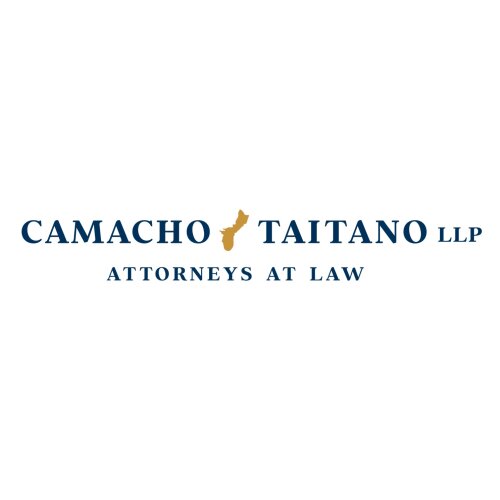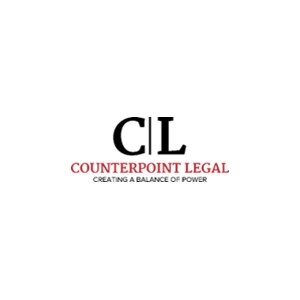Best Native People Lawyers in Hagåtña
Share your needs with us, get contacted by law firms.
Free. Takes 2 min.
List of the best lawyers in Hagåtña, Guam
About Native People Law in Hagåtña, Guam
The native people of Guam, known as the Chamorro, have a rich cultural heritage that is deeply interwoven with the island's history. Hagåtña, the capital of Guam, is a focal point for this vibrant community. Native People Law in Hagåtña primarily concerns the rights, land privileges, and cultural preservation of the Chamorro people. This field of law is crucial for maintaining the autonomy and heritage of the native population amidst modern developments.
Why You May Need a Lawyer
If you are a native person in Hagåtña, or someone advocating for the rights of native people, there are several situations in which legal assistance may be necessary:
- Disputes over land rights and usage, a common issue due to the historical significance of land to the Chamorro people.
- Protection of cultural heritage and preservation of historical sites from modern development projects.
- Guidance on federal and local regulations that impact native communities, such as fishing and environmental laws.
- Legal representation in cases of discrimination based on ethnic origin or cultural practices.
- Advice on the implications of governmental policies and treaties that affect indigenous rights.
Local Laws Overview
The legal landscape in Guam includes several key aspects relevant to Native People:
- The Chamorro Land Trust Act, which allocates public lands for residential and agricultural purposes to native Guam inhabitants.
- Cultural preservation laws that protect artifacts, sacred sites, and traditional practices of the Chamorro people.
- Regulations governing land use, environmental protection, and resource management, all of which can impact the native communities significantly.
- Federal laws, such as the Native American Graves Protection and Repatriation Act (NAGPRA), though primarily U.S.-focused, may also hold relevance in protecting Chamorro cultural sites and remains.
Frequently Asked Questions
What is the Chamorro Land Trust?
The Chamorro Land Trust is a program intended to provide access to land for residential and agricultural use to indigenous Chamorro people. The program aims to facilitate the long-term use and development of these lands while preserving the cultural heritage of the Chamorro people.
How can I claim land through the Chamorro Land Trust?
To claim land through the Chamorro Land Trust, individuals of Chamorro descent must apply through the designated government agency responsible for managing the trust. Applicants are typically required to provide documentation of their heritage and fulfill certain criteria set by the trust.
Are there specific laws protecting Chamorro cultural heritage?
Yes, Guam has enacted cultural preservation laws to protect historical Chamorro sites, artifacts, and traditions. These laws aim to maintain and promote the cultural heritage of the native people, preventing damage or exploitation by modern developments.
What rights do the native people of Guam have regarding environmental conservation?
Native people in Guam have specific rights to participate in environmental conservation, particularly concerning areas of cultural significance. Local and federal regulations ensure that their traditional knowledge and practices are considered in environmental management and policy-making.
How does federal law affect native people in Guam?
Federal laws can impact native people in Guam by influencing policies related to cultural preservation, land management, and economic development. It is crucial for native communities to engage with these laws to ensure their rights and interests are protected.
Is discrimination based on Chamorro heritage illegal?
Yes, discrimination based on ethnic background, including Chamorro heritage, is illegal in Guam. Legal protections exist to ensure equal treatment and opportunities for all individuals, regardless of their cultural or ethnic background.
What should I do if I believe my indigenous rights are being violated?
If you believe your indigenous rights are being violated, it is important to seek legal advice from professionals specializing in native people law and consider contacting local advocacy organizations that support native rights protection.
Can native people participate in local governance in Guam?
Yes, native people are encouraged to participate in local governance as a means of advocating for their rights and cultural interests. Engagement in political processes helps ensure that policies reflect the needs and values of the Chamorro community.
Where can I learn more about Chamorro culture and rights?
Several educational resources and local organizations are dedicated to promoting Chamorro culture and rights. These can provide valuable information and support for those interested in these topics.
How does the legal process work for disputes involving native people in Guam?
Legal disputes involving native people in Guam may be addressed in local courts or through mediation and arbitration, depending on the nature of the conflict. It is advisable to consult with a lawyer who has expertise in these matters to navigate the legal process effectively.
Additional Resources
Here are some additional resources and organizations that can provide support and information on legal issues affecting native people in Hagåtña, Guam:
- Guam Indigenous Rights Office
- Chamorro Herbal Healing Organization
- Guam Council on the Arts and Humanities Agency (CAHA)
- The Guam Museum
- The Office of Chamorro Cultural Heritage
Next Steps
If you require legal assistance regarding Native People issues in Hagåtña, Guam, consider taking the following steps:
- Conduct a preliminary research into the specific issue you are facing to understand the basic legal context.
- Consult with a legal professional specializing in native people law to explore your options and receive professional advice.
- Reach out to local resources and organizations for additional support and guidance.
- Consider attending local council meetings or community gatherings to become more informed and involved in issues affecting the Chamorro community.
Lawzana helps you find the best lawyers and law firms in Hagåtña through a curated and pre-screened list of qualified legal professionals. Our platform offers rankings and detailed profiles of attorneys and law firms, allowing you to compare based on practice areas, including Native People, experience, and client feedback.
Each profile includes a description of the firm's areas of practice, client reviews, team members and partners, year of establishment, spoken languages, office locations, contact information, social media presence, and any published articles or resources. Most firms on our platform speak English and are experienced in both local and international legal matters.
Get a quote from top-rated law firms in Hagåtña, Guam — quickly, securely, and without unnecessary hassle.
Disclaimer:
The information provided on this page is for general informational purposes only and does not constitute legal advice. While we strive to ensure the accuracy and relevance of the content, legal information may change over time, and interpretations of the law can vary. You should always consult with a qualified legal professional for advice specific to your situation.
We disclaim all liability for actions taken or not taken based on the content of this page. If you believe any information is incorrect or outdated, please contact us, and we will review and update it where appropriate.









